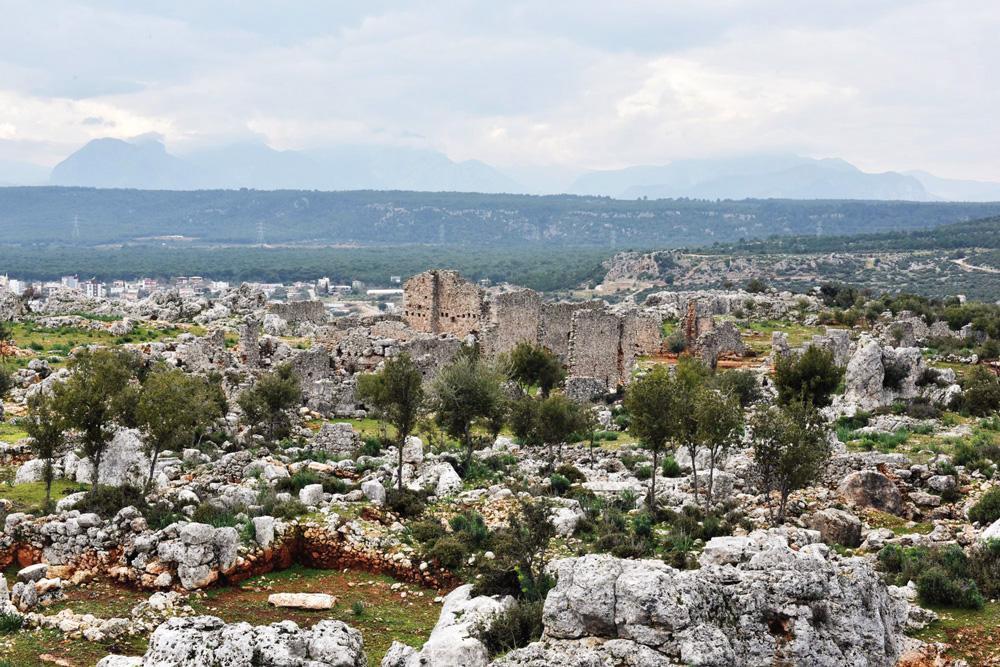
The Kepez Municipality in the southern province of Antalya, will restructure Lyrboton Kome, an ancient settlement in Antalya’s Varsak, into an archeological park.
Lyrboton Kome had previously been a big olive oil production center. The work on the ancient settlement, which has been carried out by Akdeniz University and the Antalya Museum, has almost been completed.
Plants have been cleared around the main road of the historic city, the ruins of the Roman-era bath and church, civic resident areas, Arete Tower and in water cisterns and olive oil ateliers.
After the excavations and the plants were cleared, the ancient settlement came to light. It will be ready to receive visitors as an archaeological park. The walking route in the main settlement will be the first to open for visitors.
Kepez Mayor Hakan Tütüncü recently visited the sight. “Kepez has an ancient city now. Revealing this history is a big gain for Antalya,” said Tütüncü on Jan. 22.
Noting there had not been a second antique settlement close to the city center other than Lyrboton Kome, Tütüncü noted this advantage would make Lyrboton Kome a center of attraction with clever planning.
According to the mayor, Lyroboton Kome will be a revival of the past.
“Many historic buildings will be restored here. A Roman house, for example, will be revived with the purpose of a museum. Within the ancient city, certain buildings will be revived and equipped with their past functions, such as a Roman market, a Roman house and a bakery,” said Tütüncü.
“This city is a settlement that has been engaged in olive cultivation for 2,200 years. We will turn Lyrboton Kome into a nature and history park with structures featuring the past in a lively way, with vegetation, geological structure, observation areas and promenades,” he said.
Tütüncü also said they would first open the road that connected it to the main settlement.
“It is not an easy task to revive an ancient city, to equip it with various museums and to pass through a corridor of history. We will open the ancient city in stages. There had been pollution that had been caused by the vegetation cover. It has been cleaned from the bushes. The main excavation has been completed. This has been the first step,” he said.
“In the second stage, we will open the ancient city to visitors. We will open a two-kilometer walking route. Visitors will see the project and have an idea about the excavation and restoration. In the ancient city, a magnificent view of Antalya is waiting for our locals. It offers a pleasant view of sunset and sunrise. Lyrboton Kome will be an important spot for those who want to take photos and see the city from a bird’s eye view,” said Tütüncü.
Lyrboton Kome, the city of olives
The ancient settlement is located on a hill in Varsak, where the sea, the Bey Mountains and the red-headed forest can be found. The historical city, where the sunrise and sunset can be viewed from, has been built on 452,000 square meters of land.
Lyrboton Kome includes civilian houses used during and after the Roman period, a large number of olive oil ateliers and integration systems, a Roman bath, four churches and chapels and a water cistern carved into over 100 big and small main rocks. The world’s oldest foundation inscription on olives and olive grove conservation is also in Lyrboton Kome.